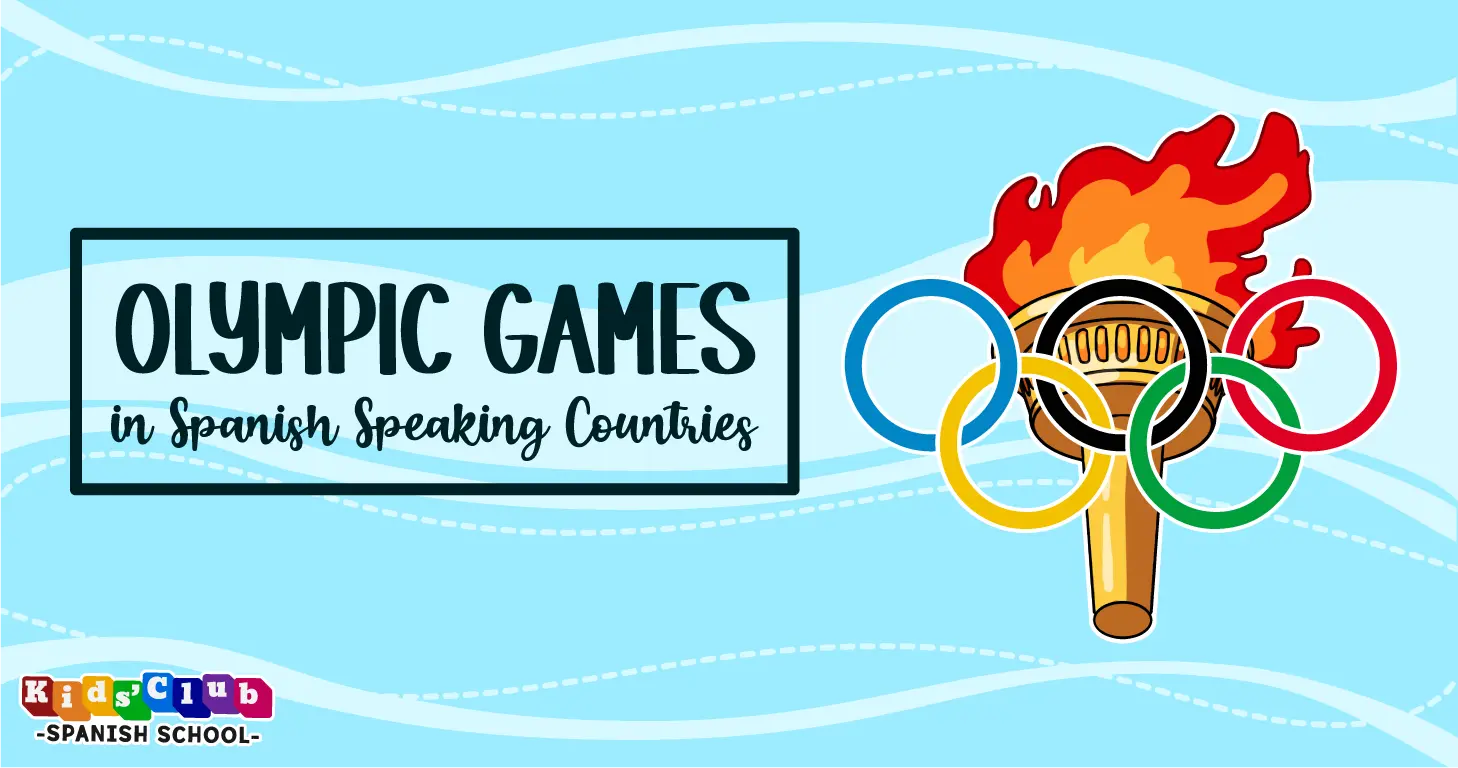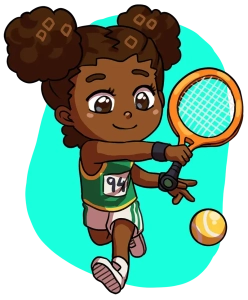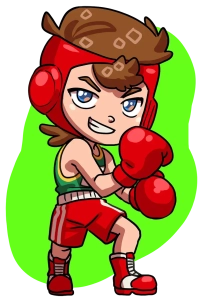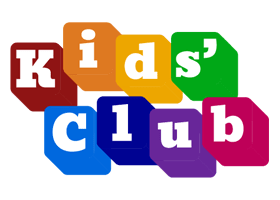Olympic Games in Spanish Speaking Countries
Alexis K Fishbaugh – August 7, 2024


Alexis K Fishbaugh – August 7, 2024
Argentina made its Olympic debut in the 1900 Paris Games. The country has excelled in sports like boxing, field hockey, and football. Notably, Argentina’s men’s football team won gold medals in 2004 (Athens) and 2008 (Beijing). These victories were significant, highlighting the nation’s strong football tradition and featuring future stars like Carlos Tevez and Lionel Messi.
Another highlight is the women’s field hockey team, Las Leonas, who have consistently performed well, winning multiple medals over the years. Their dedication and success have inspired many young athletes in Argentina to pursue field hockey.
In the 2004 Athens Olympics, Argentina won its first gold medal since 1952 in men’s basketball, defeating Italy in the final. This victory was particularly significant as basketball has become increasingly popular in Argentina, inspired by NBA star Manu Ginóbili. The triumph marked a turning point for basketball in the country, sparking greater interest and participation in the sport.
Argentina’s achievements in the Olympic Games in Spanish-speaking countries are a testament to their sports prowess.
Bolivia’s participation in the Olympic Games in Spanish-speaking countries has been modest, with the country yet to win its first Olympic medal. Bolivian athletes have participated in various sports, including athletics, swimming, and shooting, but have not yet reached the podium.
Despite not winning any medals, Bolivian marathon runner Johnny Pérez is remembered for his perseverance in the 1996 Atlanta Olympics, finishing the marathon despite extreme fatigue and dehydration. His determination and spirit have made him a memorable figure in Bolivia’s Olympic history.
Bolivia continues to strive for its first medal, with athletes showing great determination and commitment to their sports. The nation’s competitors remain hopeful and dedicated, aiming to make their mark in future Olympic Games.
Chile first participated in the Olympic Games in 1896. The country has seen success in tennis, with Nicolás Massú and Fernando González winning gold in doubles and Massú winning gold in singles at the 2004 Athens Olympics. Chile has also won medals in equestrian and athletics, showcasing the diversity of its athletic talent.
In the 2004 Athens Olympics, Chile became the first country in Latin America to win two gold medals in tennis in the same Olympics, thanks to the stellar performance of Nicolás Massú and Fernando González. Their achievements in Athens were historic and brought great pride to the nation, marking a milestone in Chilean sports history.
Chile’s history in the Olympic Games in Spanish-speaking countries is marked by these significant achievements. The success of its athletes has inspired many young Chileans to pursue sports, contributing to the development and popularity of athletics in the country.
Colombia has seen significant success in recent years, particularly in weightlifting and cycling. The country won its first Olympic gold medal in weightlifting at the 2000 Sydney Olympics, with María Isabel Urrutia’s victory. This historic win not only marked a milestone for Colombia but also inspired a new generation of athletes to pursue excellence in weightlifting.
Cyclist Mariana Pajón has also been a standout, winning gold in BMX racing in both 2012 (London) and 2016 (Rio de Janeiro). Mariana Pajón, known as the “Queen of BMX,” is one of Colombia’s most decorated athletes. Her back-to-back gold medals in BMX racing have made her a national hero, and her success has significantly increased the popularity of BMX racing in Colombia. Pajón’s achievements have also encouraged more young people to take up the sport, contributing to the development of cycling in the country.
In addition to weightlifting and BMX, Colombia has seen growing success in other cycling disciplines, with riders like Rigoberto Urán and Nairo Quintana making their mark in international competitions. The country’s emphasis on cycling has led to the establishment of world-class training facilities and programs, further solidifying Colombia’s reputation as a powerhouse in the sport.

“In the 2004 Athens Olympics, Chile became the first country in Latin America to win two gold medals in tennis in the same Olympics”
Costa Rica’s Olympic history includes participation since 1936. Over the years, Costa Rican athletes have competed in various sports, showing dedication and passion.
The country’s first and only Olympic medal came in 1996, when swimmer Claudia Poll won gold in the women’s 200-meter freestyle event in Atlanta. Claudia Poll’s gold medal was a historic moment for Costa Rica, making her the first and only Central American female athlete to win an Olympic gold medal. This achievement brought immense pride to the nation and highlighted Costa Rica’s potential on the global sports stage.
Poll’s victory not only brought joy to Costa Rica but also inspired many young athletes in the country. Her success demonstrated that with hard work and determination, athletes from smaller nations could achieve greatness. Notably, Claudia Poll’s sister, Silvia Poll, also had an impressive Olympic career, winning a silver medal in swimming at the 1988 Seoul Olympics. The Poll sisters have become icons in Costa Rican sports, inspiring future generations of swimmers and athletes.
Since her win, Costa Rican athletes have continued to compete in the Olympics, striving to bring home more medals. The country has invested in training facilities and programs aimed at nurturing talent in various disciplines. While Costa Rica has yet to add to its medal tally, the commitment to sports development is strong, and the nation’s athletes continue to compete with determination and pride.
Cuba has a rich Olympic history, particularly excelling in boxing, athletics, and wrestling. The country has won over 200 medals, with boxing being its most successful sport. Cuban boxers have won numerous gold medals, making Cuba one of the top countries in Olympic boxing. The nation’s boxing program is renowned for its rigorous training and discipline, producing some of the most skilled fighters in the world.
Teófilo Stevenson, a Cuban boxer, is a legendary figure in the sport. He won three consecutive Olympic gold medals in heavyweight boxing (1972, 1976, 1980) and is considered one of the greatest amateur boxers of all time. His decision to remain an amateur despite lucrative offers to turn professional further cemented his legacy as a symbol of Cuban sportsmanship and pride.
In athletics, Cuban athletes have made significant contributions, with stars like Alberto Juantorena, who won gold medals in both the 400 meters and 800 meters at the 1976 Montreal Olympics. Javier Sotomayor, who holds the world record in the high jump, won gold at the 1992 Barcelona Olympics and silver at the 2000 Sydney Olympics.
Wrestling is another sport where Cuba has excelled. Mijaín López has won gold medals in Greco-Roman wrestling at the 2008 Beijing, 2012 London, and 2016 Rio de Janeiro Olympics, making him one of the most celebrated wrestlers in Olympic history.
Cuba’s success in the Olympic Games in Spanish-speaking countries is not limited to these sports. The nation has also seen achievements in judo, volleyball, and baseball. Cuban judokas, like Idalys Ortiz, have won multiple medals, and the women’s volleyball team won gold medals in three consecutive Olympics (1992 Barcelona, 1996 Atlanta, and 2000 Sydney).
Cuba’s dedication to nurturing young talent and providing robust support systems for athletes has ensured a steady stream of world-class competitors representing the nation on the global stage. From boxing legends like Teófilo Stevenson to record-breaking athletes like Alberto Juantorena, Cuba has left an indelible mark on the Olympic Games in Spanish-speaking countries.
The Dominican Republic’s Olympic achievements include success in athletics and boxing, showcasing the country’s dedication and talent in these sports.
Félix Sánchez, known as “Super Félix,” is a legendary figure in Dominican sports. He won gold medals in the 400 meters hurdles at the 2004 Athens Olympics and the 2012 London Olympics, becoming a national icon. His victories, the first for the country in track and field, are celebrated as national holidays in the Dominican Republic. Sánchez’s 2004 win was particularly emotional, as he overcame injuries to dominate the event, finishing with a time of 47.63 seconds. His triumphant run, draped in the Dominican flag, became an iconic image that inspired many.
In boxing, Pedro Nolasco made history by winning a bronze medal in the bantamweight division at the 1984 Los Angeles Olympics, the Dominican Republic’s first Olympic medal. This achievement laid the foundation for future successes in the sport.
Additionally, sprinter Luguelín Santos won a silver medal in the 400 meters at the 2012 London Olympics, further highlighting the country’s talent in athletics. In weightlifting, athletes like Beatriz Pirón and Crismery Santana have consistently performed well, showcasing their strength and determination on the Olympic stage.
Ecuador made its Olympic debut in 1924 but won its first medal in 1996, when Jefferson Pérez claimed gold in the men’s 20-kilometer race walk. This historic achievement not only put Ecuador on the Olympic map but also inspired future generations of athletes. Pérez’s victory was a monumental moment for the country, showcasing the potential of Ecuadorian athletes on the world stage.
Jefferson Pérez is not only Ecuador’s first Olympic medalist but also the only Ecuadorian to win medals in two different Olympics, securing silver in the 2008 Beijing Games. His consistent performance over the years has made him a national hero and a symbol of perseverance and excellence in sports. Pérez’s success has had a lasting impact on the sports culture in Ecuador, encouraging young athletes to pursue their dreams and aim for international success.
Pérez’s gold medal in 1996 was particularly significant because it came at a time when Ecuador was not widely recognized for its athletic achievements. His victory brought immense pride to the nation and highlighted the importance of investing in sports development and athlete training programs. Following his success, there was a surge in interest in race walking and other athletics disciplines among the youth in Ecuador.
In addition to Pérez’s accomplishments, Ecuador has seen growth in other sports as well. The country’s athletes have shown promise in disciplines such as cycling, judo, and weightlifting. For example, cyclist Richard Carapaz, who won the Giro d’Italia in 2019, has become another prominent figure in Ecuadorian sports, inspiring many young cyclists.
“Cuba has won over 200 medals, with boxing being its most successful sport.”

El Salvador has yet to win an Olympic medal since its debut in 1968. The country has participated in various sports, including athletics, swimming, and shooting, with athletes giving their best efforts on the world stage.
Despite the lack of medals, Salvadoran shooter Luisa Maida made history by becoming the first female athlete from El Salvador to qualify for the Olympics in 2004. Her participation was a significant milestone, inspiring future generations of female athletes in the country. Maida’s achievement highlighted the potential of Salvadoran athletes and encouraged greater support and development for women in sports.
In addition to Maida’s groundbreaking achievement, Salvadoran athletes have continued to show determination and resilience. For example, track and field athletes have steadily improved their performances, with some coming close to qualifying for finals in regional competitions. The dedication of these athletes, despite limited resources and support, is commendable and serves as an inspiration to many.
The efforts of athletes like Luisa Maida have sparked increased interest and investment in sports within El Salvador. The government and private sectors are now more focused on providing better training facilities and resources for athletes, aiming to nurture future talent and potentially secure the country’s first Olympic medal. This growing support system is crucial for the development of sports in El Salvador and bodes well for the country’s future in the Olympic Games in Spanish-speaking countries.
Equatorial Guinea is the only Spanish-speaking country in Africa and has participated in the Olympic Games since 1984. The country’s participation has been modest, with athletes competing in athletics, swimming, and judo.
Eric Moussambani, also known as “Eric the Eel,” gained international fame at the 2000 Sydney Olympics for his memorable performance in the 100 meters freestyle. Although he finished with one of the slowest times in Olympic history, his determination and effort were widely celebrated. Moussambani’s story captured the hearts of millions around the world, symbolizing the true spirit of the Olympics – where participation and personal achievement are just as important as winning medals.
Moussambani’s journey to the Olympics was extraordinary. Having only learned to swim a few months before the Games and lacking access to a full-sized pool for training, his perseverance and dedication were remarkable. His performance in Sydney highlighted the challenges faced by athletes from countries with limited resources and infrastructure, yet also underscored their incredible resilience.
Guatemala’s first Olympic medal came in 2012, when Erick Barrondo won silver in the men’s 20-kilometer race walk in London. This historic achievement marked a significant milestone for Guatemalan sports. Erick Barrondo’s silver medal in 2012 was celebrated as a national victory, and he was honored with a parade in Guatemala City. His success has inspired a new generation of race walkers in the country.
Barrondo’s achievement not only brought pride to Guatemala but also drew attention to the potential of athletes from the region. His dedication and hard work highlighted the importance of investing in sports development and training facilities in Guatemala. Since his win, there has been a noticeable increase in participation in athletics, particularly in race walking, among the youth.
The impact of Barrondo’s success extends beyond athletics. It has also inspired improvements in the country’s sports infrastructure, with the government and private sector becoming more involved in supporting athletes. New training programs and facilities have been established to nurture young talent and provide them with the resources needed to compete at the highest levels.
Honduras has participated in the Olympics since 1968 but has yet to win a medal. The country’s athletes have competed in various sports, including athletics, boxing, and football.
The Honduran football team reached the quarterfinals at the 2016 Rio de Janeiro Olympics, their best performance to date, sparking increased interest and investment in football within the country. This remarkable achievement highlighted the potential of Honduran athletes and brought significant attention to the sport. The team’s success in Rio was celebrated nationwide, and many young athletes were inspired to take up football, dreaming of representing their country in future Olympics.
Mexico has a long and successful Olympic history, with its first participation in 1900. The country has excelled in sports like diving, boxing, and taekwondo, consistently showcasing its athletic talent on the world stage.
Notably, Mexico hosted the 1968 Olympic Games in Mexico City, a significant event in Olympic history. These Games were the first to be held in Latin America and introduced several innovations, including the use of electronic timing devices and the introduction of the Fosbury Flop in the high jump.
One of the most memorable moments of the 1968 Mexico City Olympics was the famous Black Power salute by American athletes Tommie Smith and John Carlos during the medal ceremony for the 200 meters. Their gesture drew international attention to civil rights issues and remains one of the most iconic moments in Olympic history.
Mexico has also produced outstanding athletes such as Joaquín Capilla, who won four Olympic medals in diving from 1948 to 1956, making him the most decorated Mexican Olympian. In taekwondo, María del Rosario Espinoza has made history by winning three Olympic medals: gold in 2008 (Beijing), bronze in 2012 (London), and silver in 2016 (Rio de Janeiro).
In boxing, Mexico has a proud tradition with several Olympic champions. Notable boxers include Ricardo Delgado and Antonio Roldán, who won gold medals at the 1968 Games, and more recently, Misael Rodríguez, who secured a bronze medal in the 2016 Rio Olympics, marking Mexico’s first boxing medal in 16 years.
Overall, Mexico’s contributions to the Olympic Games in Spanish-speaking countries are significant and continue to inspire new generations of athletes. The country’s rich history and consistent performances make it a prominent figure in the Olympic movement.
Nicaragua has participated in the Olympics since 1968 but has yet to win a medal.
The country’s athletes have competed in various sports, including athletics, boxing, and weightlifting. Boxer Alexis Argüello, one of Nicaragua’s most famous athletes, competed in the 1972 Munich Olympics before turning professional. Although he didn’t win a medal, he went on to become a world champion in multiple weight classes. Argüello’s Olympic experience helped catapult his professional career, where he earned the nickname “El Flaco Explosivo” for his powerful punches and strategic skill. His legacy has had a lasting impact on Nicaraguan boxing, inspiring young athletes and leading to the development of better training programs and facilities.
Additionally, Nicaraguan weightlifters and track athletes have shown promising performances in regional competitions, suggesting that the country’s first Olympic medal may not be far off.
Panama’s first Olympic medal came in 1948 when sprinter Lloyd LaBeach won bronze in both the 100 meters and 200 meters, marking Panama’s debut on the Olympic podium.
The country’s most notable achievement came in 2008, when Irving Saladino won gold in the men’s long jump in Beijing. Saladino’s victory was Panama’s first Olympic gold, making him a national hero and a symbol of national pride. His remarkable performance not only elevated Panama’s status in the international athletics community but also inspired a new generation of athletes in the country.
Following Saladino’s success, there has been a renewed focus on developing sports infrastructure and nurturing young talent in Panama, particularly in track and field events. This investment aims to build on Saladino’s legacy and produce future Olympians who can bring more glory to the nation.
Paraguay has participated in the Olympics since 1968 and won its first medal in 2004 when the men’s football team won silver in Athens. This achievement remains the highlight of Paraguay’s Olympic history. The 2004 silver medal in men’s football was Paraguay’s first and only Olympic medal. The team, led by coach Carlos Jara Saguier, included notable players like José Cardozo and Roque Santa Cruz. Their outstanding performance in Athens captivated the nation and significantly boosted the popularity of football in Paraguay. This historic achievement has inspired many young athletes to pursue football, leading to increased investment in sports facilities and youth development programs.
In the years following the 2004 Olympics, Paraguay has seen a surge in football academies and training centers aimed at nurturing young talent. The success of the 2004 team has also brought attention to other sports, encouraging broader participation in athletics across the country. Additionally, the national football team’s performance has instilled a sense of pride and unity among Paraguayans, highlighting the potential for future successes on the international stage.
Peru’s Olympic achievements include medals in shooting and volleyball. The country’s first medal came in 1948 when Edwin Vásquez won gold in shooting, marking a significant milestone in Peru’s sports history. This victory laid the foundation for future successes and inspired many athletes to pursue excellence in their respective fields.
The women’s volleyball team won silver in the 1988 Seoul Olympics, delivering one of Peru’s proudest sports moments. The final match against the Soviet Union is remembered as one of the most exciting and closely contested matches in Olympic history, showcasing the skill, determination, and spirit of the Peruvian team. This silver medal not only elevated the status of volleyball in Peru but also brought the nation together in celebration.
In the years following these achievements, Peru has continued to develop its sports programs and support its athletes. The success of the 1988 volleyball team has particularly influenced the growth of the sport in the country, with increased participation at the grassroots level and more investment in training facilities and coaching.
Puerto Rico, an unincorporated territory of the United States, has competed in the Olympics since 1948. The country has seen success in sports like boxing, wrestling, and tennis. Monica Puig won Puerto Rico’s first gold medal in tennis at the 2016 Rio de Janeiro Olympics. Monica Puig’s gold medal in 2016 was historic, making her the first athlete from Puerto Rico to win a gold medal. Her victory was celebrated across the island and marked a significant milestone in Puerto Rican sports history.
In addition to Puig’s historic win, Puerto Rico has produced other notable Olympians. Boxer Juan Evangelista Venegas won Puerto Rico’s first Olympic medal, a bronze in the bantamweight division at the 1948 London Olympics. This achievement laid the groundwork for a rich tradition in boxing, with other athletes like Orlando Maldonado and Daniel Santos following in his footsteps, earning medals in subsequent Games. In wrestling, Jaime Espinal made headlines by winning a silver medal in freestyle wrestling at the 2012 London Olympics, which was another significant achievement for Puerto Rican sports.
Puerto Rico’s athletes have also excelled in team sports. The national basketball team, known for its competitiveness, has consistently performed well in international tournaments, including the Olympics. In the 2004 Athens Olympics, the Puerto Rican basketball team famously defeated the United States in a major upset, highlighting the team’s skill and determination.
Spain has a long and rich Olympic history, with its first participation in 1900. The country has excelled in various sports, including sailing, cycling, and basketball. Spain hosted the 1992 Barcelona Olympics, which is considered one of the most successful and well-organized Games in history. The 1992 Barcelona Olympics were a turning point for Spain, not only in terms of sports but also for the city’s development. The Games led to significant urban renewal in Barcelona, transforming it into a major tourist destination. Spain’s achievements in the Olympic Games in Spanish-speaking countries are diverse and have had a lasting impact.
In sailing, Spain has consistently performed well, with athletes like Theresa Zabell and Luis Doreste winning multiple Olympic medals. Zabell won gold in the 470 class in both the 1992 and 1996 Olympics, becoming a prominent figure in Spanish sailing. Doreste also secured gold in the Flying Dutchman class in 1984 and in the Soling class in 1992, solidifying Spain’s reputation in the sport.
Cycling has been another area of success for Spain. Notable cyclists include Joan Llaneras, who won two gold medals and two silver medals in track cycling events between 2000 and 2008. His achievements have made him one of Spain’s most decorated Olympians. Additionally, Samuel Sánchez won gold in the men’s road race at the 2008 Beijing Olympics, further highlighting Spain’s prowess in cycling.
Basketball has also been a strong suit for Spain, with the national team achieving significant success on the international stage. The men’s basketball team won silver medals in both the 2008 Beijing and 2012 London Olympics, and a bronze in the 2016 Rio de Janeiro Olympics. The team’s success has been bolstered by the presence of NBA stars such as Pau Gasol and his brother Marc Gasol, who have played pivotal roles in Spain’s Olympic campaigns.
The impact of the 1992 Barcelona Olympics on the city and the country cannot be overstated. The Games brought about a transformation in Barcelona’s infrastructure, including the development of new sports facilities, improved transportation systems, and the rejuvenation of urban spaces. This urban renewal not only enhanced the quality of life for residents but also positioned Barcelona as a leading global tourist destination. The lasting legacy of the 1992 Olympics continues to benefit the city and its economy.
Spain’s diverse achievements in the Olympic Games in Spanish-speaking countries reflect the nation’s commitment to excellence in sports. The success of Spanish athletes across various disciplines has inspired future generations and contributed to a strong sporting culture in the country. Spain’s ongoing investment in sports development and infrastructure ensures that it will continue to be a formidable presence in the Olympics for years to come.
Uruguay’s Olympic achievements include success in football and basketball. The country won gold medals in men’s football in 1924 (Paris) and 1928 (Amsterdam), marking the country’s dominance in the early years of Olympic football. Uruguay’s participation in the Olympic Games in Spanish-speaking countries is highlighted by these early successes, which set the stage for the country’s rich football tradition.
In addition to football, Uruguay has made notable contributions in other sports. The national basketball team, known as “Los Celestes,” had a significant achievement by winning bronze medals at the 1952 Helsinki and 1956 Melbourne Olympics, showcasing their skill and competitive spirit on the global stage. Beyond team sports, Uruguay has also seen individual successes in rowing. In the 1948 London Olympics, Eduardo Risso won a silver medal in single sculls, adding to Uruguay’s Olympic accolades and demonstrating the versatility of the country’s athletes. These achievements underscore Uruguay’s diverse sporting talent and commitment to excellence across multiple disciplines.
Just as we delve into the rich history and achievements of Spanish-speaking countries in the Olympic Games, Kids’ Club Spanish School invites your children to embark on an equally enriching journey into the Spanish language. Our online classes are designed to be as captivating and diverse as the inspiring stories of athletes from Latin America and Spain.
Sign up your children today at www.kidsclubspanishschool.com for two free trial Spanish lessons, and let them experience the joys and educational benefits of our immersive Spanish program.
 Kids' Club Spanish School, LLC
https://kidsclubspanishschool.com/wp-content/uploads/2024/07/blog_summer-spanish-activities-for-kids-3.png
807
800
Alexis Fishbaugh
https://cdnwp.kidsclubspanishschool.com/wp-content/uploads/2025/05/kids-club-spanish-school-header-logo.webp
Alexis Fishbaugh2024-07-28 22:48:532024-07-28 22:48:53Summer Spanish Activities for Kids
Kids' Club Spanish School, LLC
https://kidsclubspanishschool.com/wp-content/uploads/2024/07/blog_summer-spanish-activities-for-kids-3.png
807
800
Alexis Fishbaugh
https://cdnwp.kidsclubspanishschool.com/wp-content/uploads/2025/05/kids-club-spanish-school-header-logo.webp
Alexis Fishbaugh2024-07-28 22:48:532024-07-28 22:48:53Summer Spanish Activities for Kids Kids' Club Spanish School, LLC
https://kidsclubspanishschool.com/wp-content/uploads/2024/05/blog-spanish-bugs-fun-facts-engaging-activities-101.webp
800
800
Alexis Fishbaugh
https://cdnwp.kidsclubspanishschool.com/wp-content/uploads/2025/05/kids-club-spanish-school-header-logo.webp
Alexis Fishbaugh2024-05-26 18:28:052024-07-21 05:53:07Spanish Bugs: Fun Facts and Engaging Activities
Kids' Club Spanish School, LLC
https://kidsclubspanishschool.com/wp-content/uploads/2024/05/blog-spanish-bugs-fun-facts-engaging-activities-101.webp
800
800
Alexis Fishbaugh
https://cdnwp.kidsclubspanishschool.com/wp-content/uploads/2025/05/kids-club-spanish-school-header-logo.webp
Alexis Fishbaugh2024-05-26 18:28:052024-07-21 05:53:07Spanish Bugs: Fun Facts and Engaging Activities Kids' Club Spanish School, SL
https://kidsclubspanishschool.com/wp-content/uploads/2024/04/dinner-in-spanish-speaking-countries.png
800
800
Alexis Fishbaugh
https://cdnwp.kidsclubspanishschool.com/wp-content/uploads/2025/05/kids-club-spanish-school-header-logo.webp
Alexis Fishbaugh2024-04-25 12:22:352024-07-21 05:40:48Dinner in Spanish Speaking Countries
Kids' Club Spanish School, SL
https://kidsclubspanishschool.com/wp-content/uploads/2024/04/dinner-in-spanish-speaking-countries.png
800
800
Alexis Fishbaugh
https://cdnwp.kidsclubspanishschool.com/wp-content/uploads/2025/05/kids-club-spanish-school-header-logo.webp
Alexis Fishbaugh2024-04-25 12:22:352024-07-21 05:40:48Dinner in Spanish Speaking Countries Kids' Club Spanish School, LLC
https://kidsclubspanishschool.com/wp-content/uploads/2024/03/free-online-spanish-for-beginners-squared-ad.png
800
800
Alexis Fishbaugh
https://cdnwp.kidsclubspanishschool.com/wp-content/uploads/2025/05/kids-club-spanish-school-header-logo.webp
Alexis Fishbaugh2024-03-29 13:09:202024-05-01 14:54:20Free Online Spanish Classes for Beginners
Kids' Club Spanish School, LLC
https://kidsclubspanishschool.com/wp-content/uploads/2024/03/free-online-spanish-for-beginners-squared-ad.png
800
800
Alexis Fishbaugh
https://cdnwp.kidsclubspanishschool.com/wp-content/uploads/2025/05/kids-club-spanish-school-header-logo.webp
Alexis Fishbaugh2024-03-29 13:09:202024-05-01 14:54:20Free Online Spanish Classes for BeginnersClick here to add your own text

Join the fun and come learn Spanish online with us! Native certified teachers making learning Spanish certifiably fun

 Kids' Club Spanish School, LLC
Kids' Club Spanish School, LLC